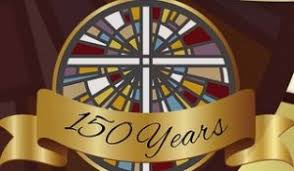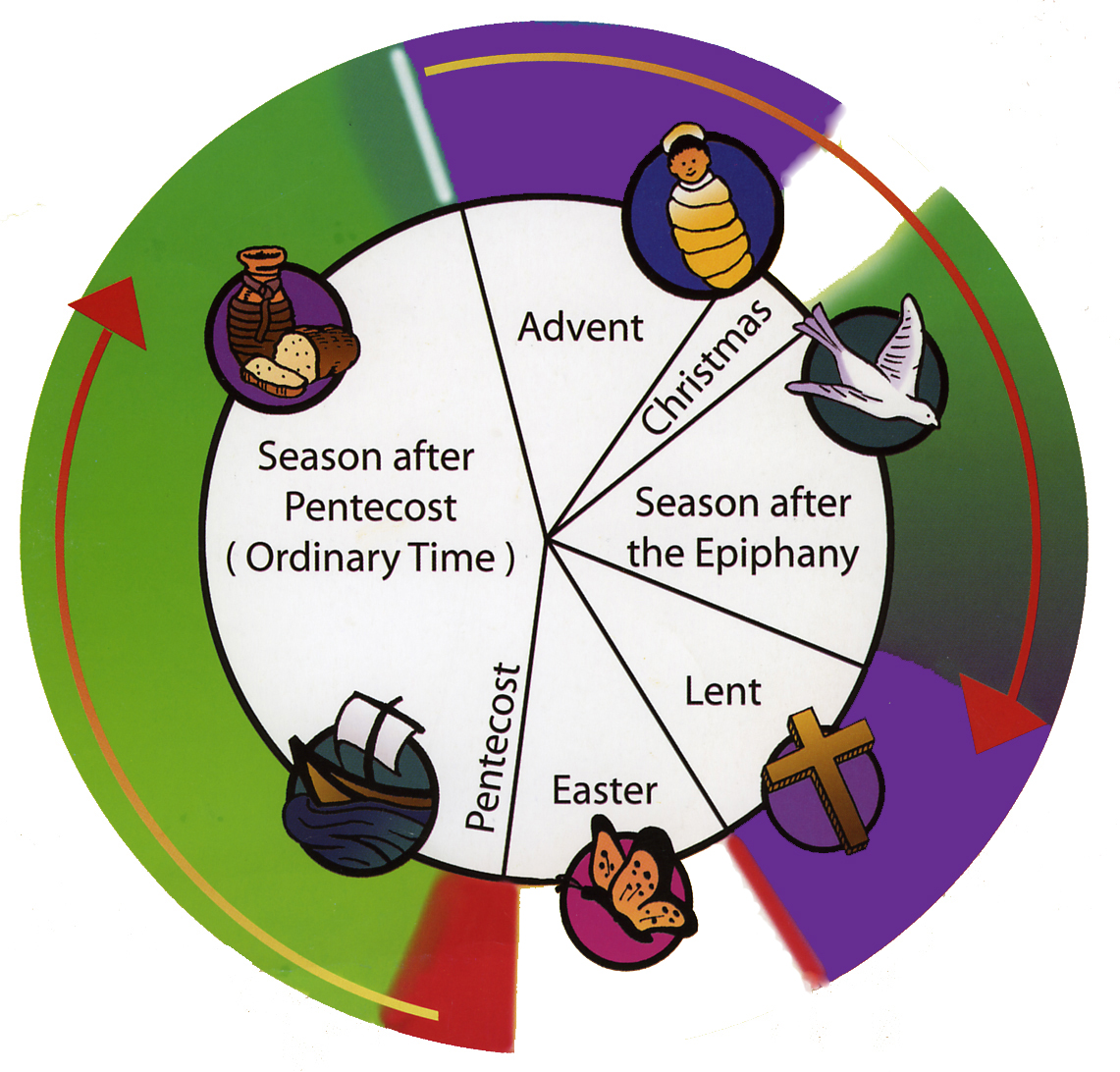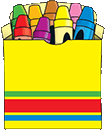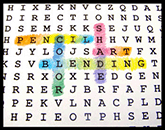



| CONGREGATION |
|  |
| Pastor | ||
| Officers | ||
| KIDS CORNER | ||
History | ||
| Links | ||
Cemetery | ||
The Church Calendar and the Lectionary
 | The Church Calendar is divided into six seasons. Four of the seasons begin with an important milestone and celebrate the story of Jesus: Christmas, Epiphany, Easter, and Pentecost. Two of the seasons, Advent and Lent, are seasons of preparation - for the coming of Jesus (Advent) and the Resurrection (Lent). The church calendar begins in late November/early December with the season of Advent. Sundays are identified not by date, but by season - the first Sunday in Advent, the second Sunday of Christmas, the fourth Sunday after Epiphany, etc. There are other special days like Jesus' Baptism and Trinity Sunday that fall within one of the six seasons. The church calendar forms the basis for the lectionary. A lectionary is a collection of Bible readings selected and arranged based on the church calendar. Our congregation uses a lectionary that has been agreed upon by a group of biblical scholars from many denominations - not just Lutherans, but also Catholics, Episcopalians, Baptists, Presbyterians, Methodists and many others. For each day of the year the lectionary recommends verses from the Old Testament, the New Testament and a Psalm. On Sundays, the lectionary also suggests readings from the Gospels (Matthew Mark, Luke and John) and the Epistles (the rest of the New Testament). Have you noticed the colors used on the altar and pulpit? For Sundays and Festival Days (like Christmas and Holy Week) the lectionary indicates the color to be used in the sanctuary. The graphic on the right shows the major divisions (seasons) of the church year and the color associated with each one. The sanctuary colors are meant to help set the right mood for worship during the seasons of the church year. The lectionary also provides a 'Prayer of the Day' and a 'Gospel Acclamation' for Sundays and Festival Days. The acclamation is a way for us to respond to the Good News of the Gospel, and usually includes a short Bible verse. The Bible is a big book so the lectionary recommends readings in a three year cycle. In the first year ("Year A") Gospel readings are mostly from the Gospel of Matthew. Most Old Testament readings come from Genesis and tell the story of Moses, and the New Testament readings are taken from Romans, Philippians, and Thessalonians. In the second year (Year "B") the Gospel of Mark is the source for most Gospel readings. From the Old Testamant, Bible readings tell the story of David. New Testament readings come from 1 & 2 Corinthians, Ephesians, James and Hebrews. Year "C" uses the Gospel of Luke and Galatians, Colossians, 1 & 2 Timothy and 2 Thessalonians. The Old Testament readings come from the books of the prophets like Isaiah and Nehemiah, but use the book of Jeremiah most of all. The Gospel of John is used in all three years of the lectionary cycle. ELCA Lectionary |
| October 2015 | |||
 |  |  | |
| Coloring Page* | Wordsearch* | Music | Craft Project |
* Opens in a new window
| Top of Page | Kids Corner Home | Last Page Viewed | |
Copyright 2022 Concordia Lutheran Church 6637 80th Avenue North Glyndon MN 56547 | |||
| Site Index | Search the Website | Contact Us | |
